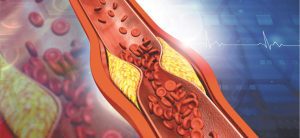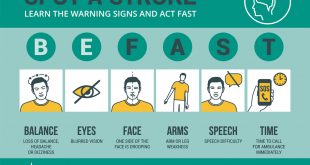By Jeffrey Edwards, MD – Sarasota Vascular Specialists


Generally speaking, there is “good” cholesterol and “bad” cholesterol.
• Good cholesterol, also called high-density lipoprotein (HDL), helps maintain vessel health and prevents the build-up of atherosclerotic plaque.
• Bad cholesterol, also known as low-density lipoprotein (LDL), contributes to vascular inflammation and the development of atherosclerosis
• Triglycerides are fats which are produced by the liver, which also contribute to the development of atherosclerotic plaque
Over time, excess bad cholesterol results in the development of arteriosclerosis, sometimes called hardening of the arteries. The plaque that forms can narrow the inside of blood vessels and lead to blockage, resulting in heart attacks, stroke, peripheral artery disease. The buildup of plaque can also damage the arterial wall resulting in aneurysms or arterial dissections.
It is important to know your cholesterol levels and to have them checked on a regular basis. The American Heart Association recommends the following thresholds for cholesterol levels in most patients:
• Total cholesterol less than 200
• Good cholesterol (HDL) greater than 60
• Bad cholesterol (LDL) less than 70
• Triglycerides less than 150
Cholesterol levels are largely impacted by diet, lifestyle, and genetics. Controlling your cholesterol can be achieved with lifestyle changes such as maintaining a healthy weight, avoiding fried fatty foods, eating mostly vegetables, and limiting the amount of meat in your diet.
Medications are very effective at reducing cholesterol levels and statins are recommended as first-line therapy for most adults. Statin medications reduce the production of LDL cholesterol, thereby slowing the production of atherosclerotic plaque and reducing the risk of heart attack and stroke. Some people benefit from statins even if they have normal cholesterol levels. Who benefits from these medications?
• People at risk for heart attack and stroke
• Patients with known atherosclerotic plaque in the vessels supplying the brain or the legs
• Patient undergoing vascular or cardiac procedures
The benefits to statins are several. Research has shown that statins may actually reduce the degree of plaque within the leg arteries. It has also been shown that statins can have anti-inflammatory effects on the vessels walls. It has been clearly demonstrated in large studies that patients under going vascular procedures have fewer complications if they are taking statin medications at the time of their procedure.
Side effects from statin medications are possible, but they are rare. Most often, people may experience muscle pain or inflammation. In this case, the symptoms will resolve when the medication is stopped. Only in rare cases have people developed permanent muscle damage, which can also injure the kidneys. Although liver damage has been reported with statin use, this side effect is extremely rare. You should have your liver function tested after starting a new statin medication, and if everything is normal then further testing is not required.
Maintain good vascular health by keeping your cholesterol in check and living a healthy lifestyle. Daily exercise, healthy diet, and avoiding tobacco products will give you the best chance at avoiding vascular disease. Talk to your doctor for more information and ask if a vascular evaluation would be right for you.
Sarasota Vascular Specialists
Sarasota Vascular Specialists have been the leading vascular specialists in the tricounty area for over 30 years. Their practice is the only medical practice in the region dedicated to the treatment of patients with disorders of the veins and arteries. They are uniquely trained and experienced to offer all forms of diagnosis and therapy including:
• Varicose veins, spider veins, deep venous thrombosis
• Carotid artery surgery and carotid stenting
• Medical management, angioplasty, bypass
• Thoracic and abdominal aortic aneurysms
Sarasota Vascular Specialists has an onsite lab to perform ultrasound and give rapid diagnostics. Their vascular lab can non-invasively diagnose all arterial and venous diseases. Their experienced vascular lab staff includes eight registered vascular technologists.
It’s the first vascular laboratory in Sarasota to be certified by the Intersocietal Commission for the Accreditation of Vascular Laboratories. The lab was also featured as the gold standard facility by ABC Television’s Prime Time when it evaluated vascular labs in Florida. They have state-of-the-art equipment and vascular imaging software.
To schedule your appointment, please call 941-371-6565, or visit www.veinsandarteries.com to find out more.
Sarasota Vascular Specialists
941-371-6565
Sarasota
600 N. Cattlemen Road, Sarasota, Florida 34232
 Southwest Florida's Health and Wellness Magazine Health and Wellness Articles
Southwest Florida's Health and Wellness Magazine Health and Wellness Articles

